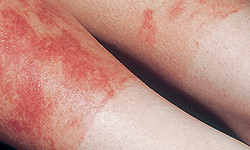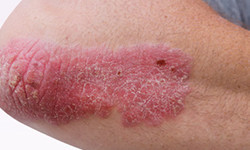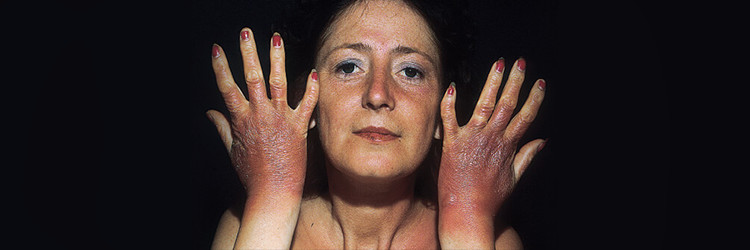The damaging effects of sunlight upon the skin and body have been well documented over the years. More specifically, photosensitivity—also known as a sun allergy—is an immune system reaction that is brought on by exposure to sunlight.
Here is everything you need to know about photosensitivity :
1. What causes photosensitivity?

2. What are the symptoms of photosensitivity?

Phototoxicity, which is much more common than photoallergy, is characterized by redness, inflammation, and hyperpigmentation that develops within hours of sun exposure. This is different from sunburn, as it happens only when the individual has taken certain drugs that induce this reaction.
Photoallergy is a typical allergic skin reaction characterized by itching, redness, and scaling. This happens as a result of using certain products, such as aftershave lotion, sunscreen or sulfonamides, which when exposed to the sun cause this reaction. Photoallergy develops within one to three days of exposure to sunlight.
3. What are the forms of photosensitivity treatment?

Avoiding prolonged exposure to sunlight, wearing protective clothing (full sleeves, hats, gloves), using an umbrella on sunny days, applying safe and effective sunscreens, and eliminating the drugs that cause photosensitivity are some of the ways to prevent and treat the problem.
If you are on medication that can potentially cause photosensitivity, or if you tend to spend prolonged periods of time in the sun, it is best to have your dermatologist test you for photosensitivity, so that you can protect your skin in the best way possible.
Reference links:
1.Phototoxicity and photoallergy-https://www.ncbi.nlm.nih.gov/pubmed/10604793
2. Phototoxic Reactions Versus PhotoAllergic Reactions-http://www.skincancer.org/publications/photosensitivity-report/phototoxic-reactions-versus-photoallergic-reactions
3. Photosensitivity Reactions-http://www.msdmanuals.com/home/skin-disorders/sunlight-and-skin-damage/photosensitivity-reactions














